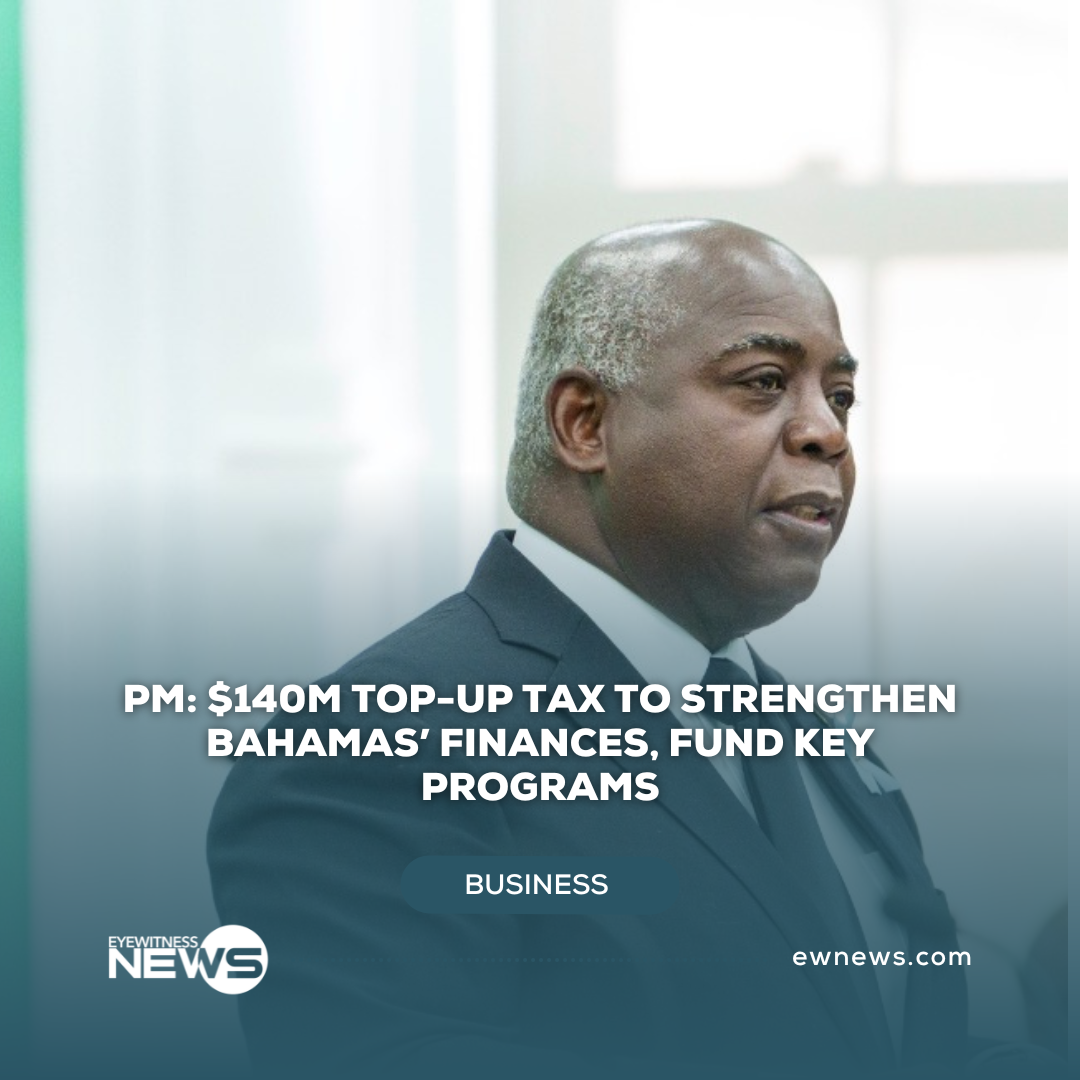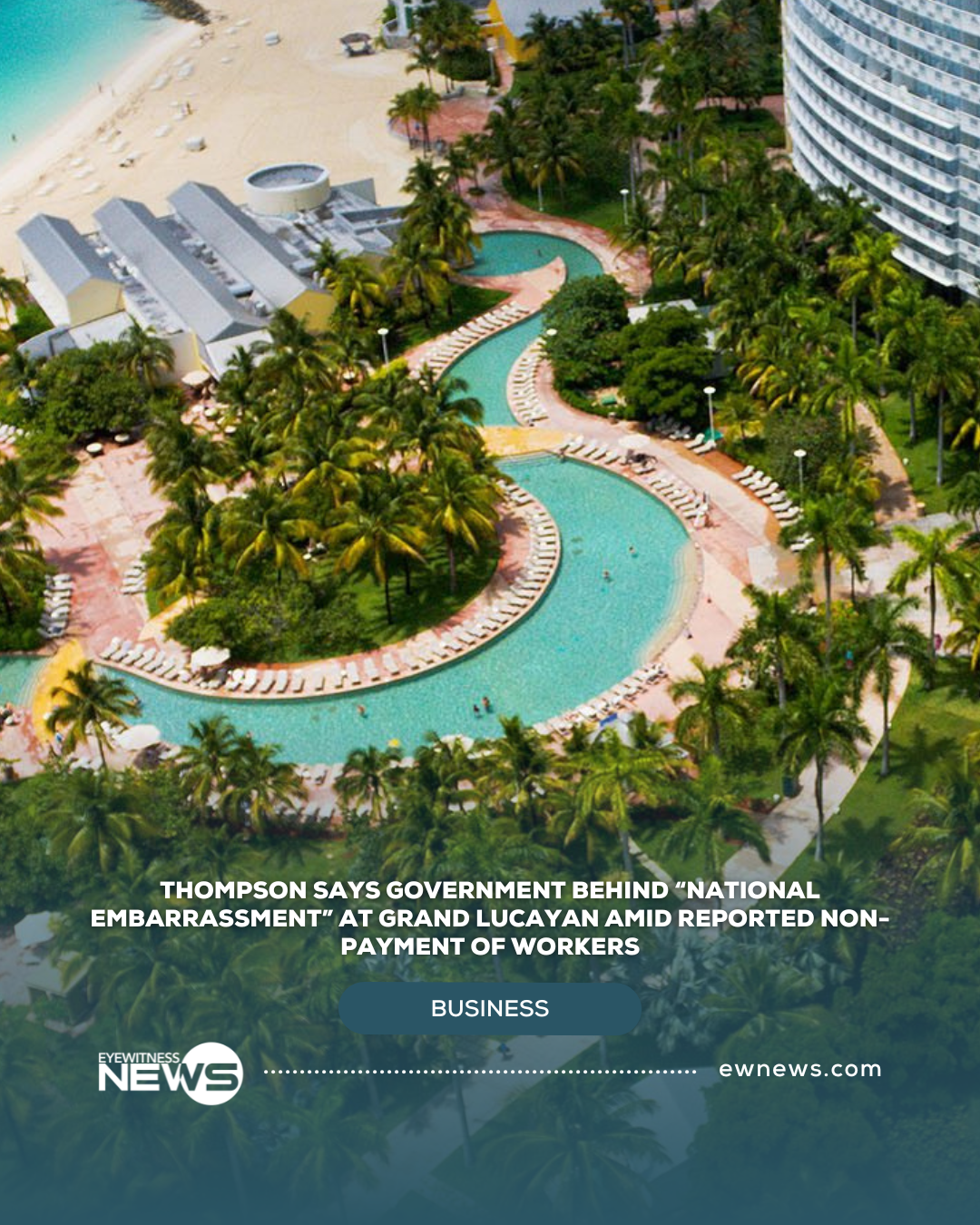NASSAU, BAHAMAS – The Domestic Minimum Top-up Tax, which applies only to multinational corporations operating in The Bahamas earning over 750 million euros per year, is projected to generate a revenue boost of approximately $140 million, which is expected to strengthen the government’s fiscal position and fund key programs to empower Bahamians, according to Prime Minister Philip Davis.
Prime Minister Davis, who kicked off the debate in Parliament on Wednesday on the Domestic Minimum Top-up Tax Bill, 2024, noted that if The Bahamas does not implement this tax, the revenue of multinational entities operating in The Bahamas could eventually be taxed by other jurisdictions. He further noted that the government must ensure that The Bahamas, as a leading financial services jurisdiction, remains fully compliant with global standards.
Davis highlighted that this Top-up Tax, the first-ever corporate income tax introduced in The Bahamas, will raise revenues without negatively impacting Bahamian businesses. He emphasized that the Domestic Minimum Top-up Tax applies only to multinational corporations operating in The Bahamas with annual earnings equivalent to $800 million or more.
Prime Minister Davis noted that by introducing the top-up tax on multinational entities, The Bahamas is participating in a major global change, as 140 other countries have agreed with the Organisation for Economic Co-operation and Development (OECD) on a global minimum corporate tax.
He stated that the agreement calls for a 15 percent tax on multinationals’ revenue for the fiscal period beginning January 1, 2024, although some companies may apply for an extension until 2025 if newly impacted by this tax. The 15 percent, he pointed out, refers to the total effective tax rate, which requires corporations not currently taxed at 15 percent to “top up” to meet the threshold.
The OECD has pushed for this global initiative to prevent corporations from relocating to low-tax jurisdictions while generating most of their revenue elsewhere. This change, the OECD argues, will produce a fairer global tax regime, potentially unlocking hundreds of billions in revenue for participating jurisdictions.
The Prime Minister noted that his administration has pledged not to introduce any major new taxes that would burden the Bahamian people, pointing out that most Bahamians have experienced lower taxes over the past three years.
“We lowered customs duties on a wide range of healthy and nutritious dietary staples, construction supplies, and essential goods.” He noted that his administration reduced VAT from 12 percent to 10 percent – a 20 percent reduction, increased the threshold for real property tax from $250,000 to $300,000, and targeted strategic areas for increases, with enhanced enforcement.
“For example, owners of yachts are paying a bit more in fees to cruise around in our beautiful waters. And local businesses that were avoiding paying customs duties or real property taxes now have to pay up. Our main method to generate increased revenues has been improved enforcement and collection,” he noted.
Davis also mentioned that roughly 70 percent of the hundreds of millions of dollars owed in real property taxes is owed by second homeowners.
“These are non-Bahamians who often own a vacation home or winter home here in The Bahamas. For some, we function as their ‘home away from home’ when they want to escape to paradise. Others use their second homes as income generators, renting out their properties to locals and visitors alike,” he said.


















